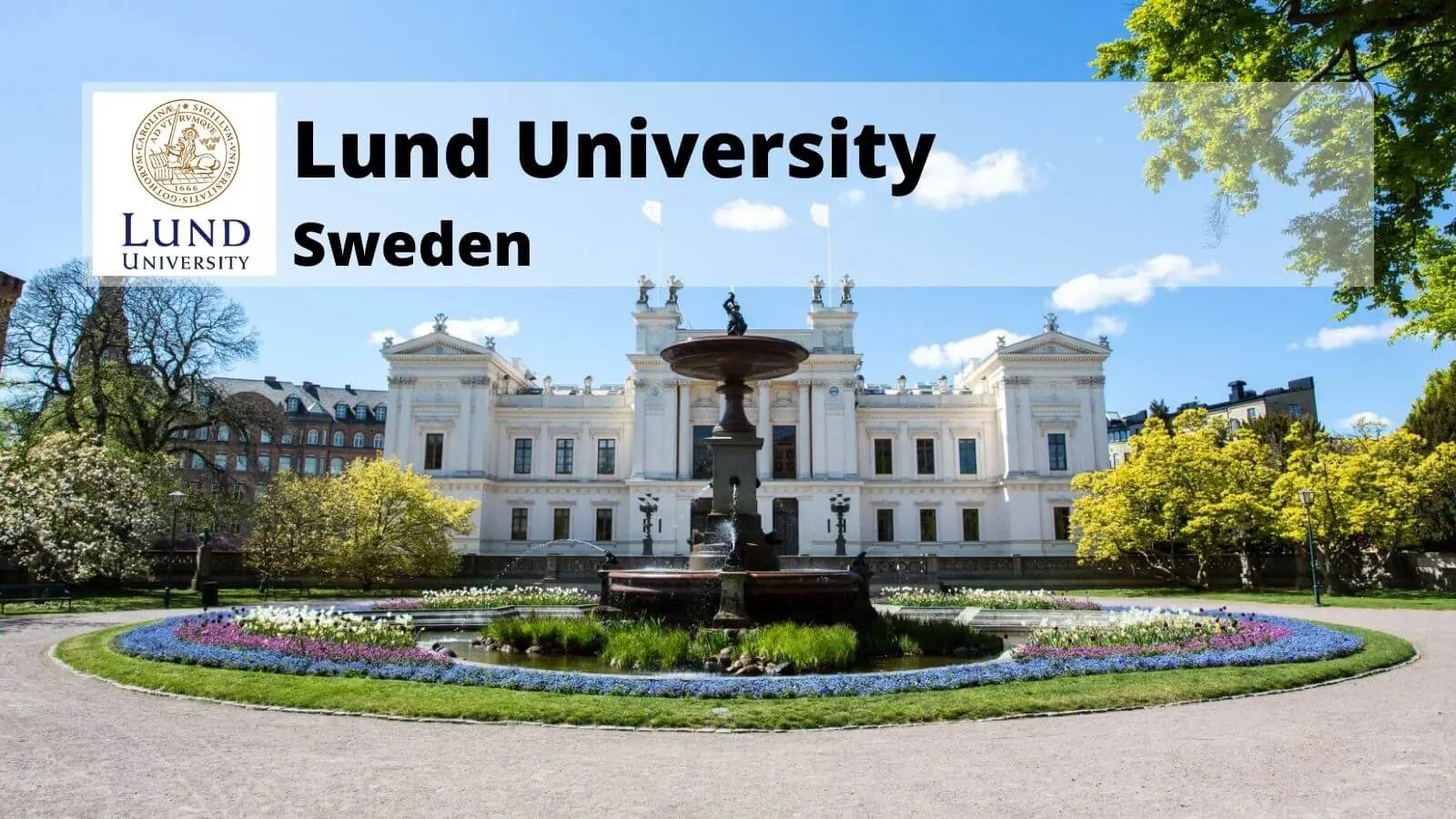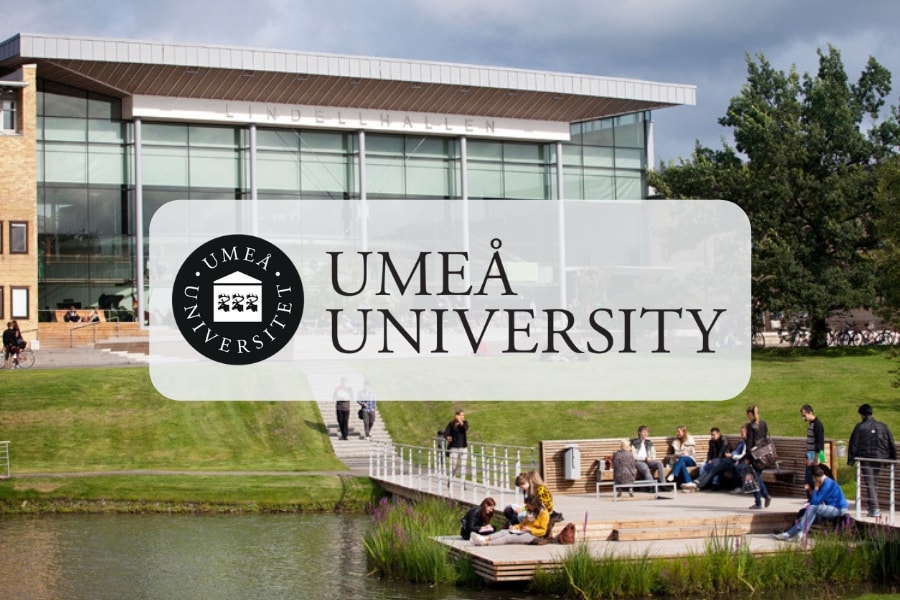Lund University was founded in 1666 and is repeatedly ranked among the world’s top 100 universities. The University has around 44 000 students and more than 8 000 staff based in Lund, Helsingborg and Malmö. We are united in our efforts to understand, explain and improve our world and the human condition.
Lund University welcomes applicants with diverse backgrounds and experiences. We regard gender equality and diversity as a strength and an asset.
The Department of Chemistry at Lund University, Faculty of Engineering invites applications for a position as Assistant Professor in Materials Chemistry with focus on synthesis of inorganic materials for green energy applications.
The WISE program (Wallenberg Initiative Material Science for Sustainability), funded by the Knut and Alice Wallenberg foundation, is hereby opening the recruitment of WISE Fellowship faculty positions (Assistant/Associate Professor, Biträdande lektor/Lektor) in materials science with focus on sustainability. This position focuses on research and teaching within the subject area of Materials Chemistry, with focus on synthesis of inorganic materials for green energy applications. The position will be placed at the Department of Chemistry at Lund University. The recruited WISE Fellow will receive financing for two PhD students and two postdoctoral fellows.
Lund University is currently expanding and strengthening our material science research to develop one of Europe’s future top materials science centres. Our profile covers a broad range of materials science research, including strong links to our new world-class infrastructures, the Max IV synchrotron and European Spallation Source (ESS). It is in this context that Department of Chemistry is currently seeking a WISE Fellow to expand our materials research into new long-term research directions.
The Department of Chemistry conducts research in all core areas of chemistry with a broad theme of research for a sustainable society. Focus areas include the environment, renewable resources and health. Key research areas with potential synergies to this position include organic, inorganic and polymer synthesis for catalysis, photovoltaics and energy storage applications, among other areas; understanding interactions between light and matter, with particular focus on light harvesting and conversion; as well as theory and modeling of chemical processes such as photochemistry, photoelectrochemistry, solar energy conversion and catalysis. Advanced characterization of material properties by electron microscopy (at the national Centre for High Resolution Electron Microscopy, nCHREM) and X-ray characterization (in particular at the synchrotron MAX IV) is also a focal area of the Department.
Subject
Materials Chemistry.
Subject description
The successful candidate will conduct research into the synthesis of new or novel materials for green energy applications. Specific focus will be on applications involving the harvesting, conversion or storage of energy from light, such as photocatalytic, photoelectrochemical or photovoltaic applications. The materials relevant to this position will be solid-state inorganic materials, but the specific choice of materials to study will be determined by the research interests of the successful candidate. Sustainability of the materials to be synthesized will be an important focus, and for instance factors such as recyclability and toxicity are important to address. Research projects that combine synthesis with materials design and modeling are also welcome. Additional efforts into materials synthesis for other types of green energy applications, such as fuel cells or batteries, are also welcome as a complement to the primary focus.
Work duties
Employment as an Assistant Professor is a career development position, which aims for the holder to develop his or her independence as a researcher and educator. The work duties mainly involve research and teaching. The position shall include the opportunity for five weeks of training in higher education teaching and learning.
Work duties include:
- Research within the subject area.
- Teaching in the first, second and third cycles of studies.
- Supervision of degree projects and doctoral students.
- Actively seeking external research funding.
- Collaboration with industry and wider society.
- Administration related to the work duties listed above.
Qualification requirements
Appointment to Assistant Professor requires that the applicant has a PhD, or acquired corresponding research expertise.
Priority should be given to applicants who have completed their degree or acquired the equivalent expertise no more than five years before the last date for applications.
Assessment criteria
For appointment to Assistant Professor, the following shall form the assessment criteria:
- A good ability to develop and conduct high quality research.
- Teaching skills.
Additional requirements
- Very good oral and written proficiency in English.
- Extensive experience with the synthesis of solid-state inorganic materials.
- Experience of postdoctoral research in a research environment other than the university at which the applicant obtained their PhD
Other qualifications
Experience with inorganic materials synthesis for the purpose of harvesting, conversion or storage of energy from light Documented ability to acquire external funding.
Consideration will also be given to ability to cooperate, drive and independence, and how the applicant’s experience and skills complement and strengthen ongoing research, education and innovation within the department, and how they stand to contribute to its future development.
As part of their application the applicant is to submit a research plan clearly describing the research that will be conducted during the employment within the topic of Synthesis of inorganic materials for green energy applications. The plan should also describe how the applicant’s research could complement and reinforce research at the Department of Chemistry. The quality of the research plan shall be given substantial weight in the selection of candidates. Relevance of the research plan to the specific thematic area of the position as well as the broader goals of Materials Science for Sustainability will be part of the evaluation.
Terms of employment
This is a full-time, fixed-term employment of 6 years. The employment is regulated in accordance with Chapter 4 Section 12a§ HEA.
Instructions on how to apply
Applications shall be written in English. Please draw up the application in accordance with LTH’s Academic qualifications portfolio – see link below. Upload the application as PDF-files in the recruitment system. Read more:
http://www.lth.se/english/working-at-lth/to-apply-for-academic-positions-at-lth/
Key words: materials chemistry, synthesis, inorganic materials, solid-state chemistry, materials science
*****************************************************************
Promotion to Senior Lecturer in Materials Chemistry
During the period of employment, an Assistant Professor can apply for promotion to a permanent position as Senior Lecturer if he or she has the required qualifications listed below, and is deemed suitable. An Assistant Professor can only apply for promotion once.
Qualification requirements
Appointment to Senior Lecturer requires that the applicant has:
- A PhD or corresponding research competence or professional expertise considered important with regard to the subject matter of the post and the work duties it will involve.
- Demonstrated teaching expertise.
- Completed five weeks of training in higher education teaching and learning, or acquired equivalent knowledge by other means.
Assessment criteria
The assessment criteria specify the aspects to be taken into account, and the level to be achieved, in order for the assessment criteria to be deemed fulfilled. The following assessment criteria must be fulfilled for appointment to senior lecturer:
- A good national and international standing as a researcher. The requirement for international experience shall be assessed with consideration to the character and traditions of the subject.
- Good teaching ability, including a good ability to conduct, develop and lead teaching and other educational activities on different levels and using a variety of teaching methods.
- An ability to supervise doctoral students to achieve a PhD.
- An ability to collaborate with wider society and communicate his or her activities.
- A good general ability to lead and develop activities.
Additional requirements
- Good ability to co-operate, independence and drive.
- The applicant has shown scientific indepdence by producing several publications without their previous supervisors or mentors, where the applicant has clearly had a leading (PI) role.
- Ability to actively, independently and successfully seek external funding as main applicant This means that the applicant has received multi-year research grants from large national or international funders such as ERC, KAW, VR, Formas, etc. If the applicant has not received such funding as main applicant they must be able to show very good evaluations from the application process.
| Type of employment | Temporary position longer than 6 months |
|---|---|
| Contract type | Full time |
| First day of employment | As soon as possible |
| Salary | Monthly |
| Number of positions | 1 |
| Working hours | 100 % |
| City | Lund |
| County | Skåne län |
| Country | Sweden |
| Reference number | PA2022/1727 |
| Contact |
|
| Union representative |
|
| Published | 13.Jun.2022 |
| Last application date | 15.Aug.2022 11:59 PM CEST |

